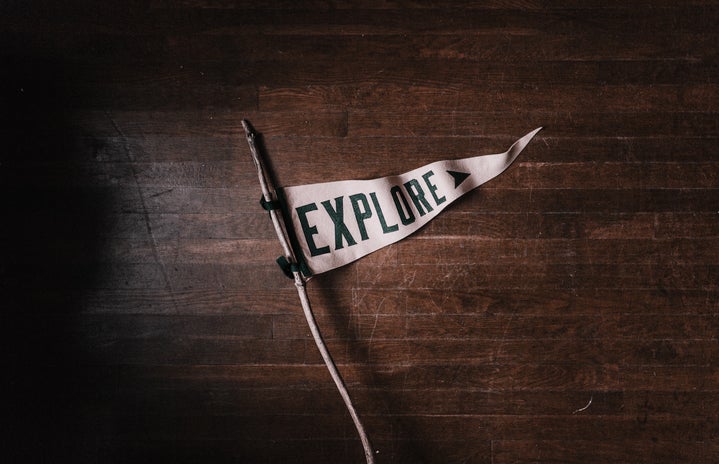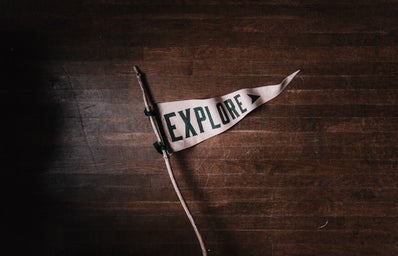By the fall of my junior year, I was ready to take time away from Wellesley. My routine of walking to class, eating dinner in the Lu and waiting for the Peter at the Harvard stop had become stale. To say that I needed some soul-searching is cliché; but I did need someone to push me out of my comfort zone. And after waiting for a Prince Charming that didn’t exist, I realized that that someone was me.
So I pushed myself. I abandoned the familiarity of Massachusetts and Wellesley and left for a semester of studying abroad. I contemplated going to New Zealand or Germany – eager for four months of adventure, culture, and romance. Eventually, I chose to pursue a program through The School for International Teaching and International Honors Program called Climate Change: The Politics of Food, Water and Energy. I travelled to Vietnam, Morocco and Bolivia, three unique emerging economies facing the multi-faceted consequences of climate change, to research environmental market policy and learn about the global economy.
Now that I am back at Wellesley, I am more passionate and inspired to address what is perhaps, the most pressing issue of my generation . From Hurricane Matthew to the growing uncertainties facing world markets, the greatest problems facing society today are fundamentally rooted in our relationship to the environment.
But as I travelled the world with a group of 24 students from various universities and colleges, I also unexpectedly learned a lot about myself. Each country gave me a unique perspective about my place in the world, about my autonomy, and about my potential.
Vietnam: My Privilege.
In Vietnam, the day started at 5am. Restaurant keepers would arrange red plastic chairs outside of their shops as customers trickled in for bowls of pho and dark coffee sweetened with condensed milk. Villagers would practice tai chi in the park next to my host family’s house and I would wake up to the soothing low hums of the Buddhist pagodas harmonizing.
I lived in Can Tho with my host family for two weeks. During that time, I visited the Bac Lieu Windfarm in the Mekong Delta. The Windfarm is part of Vietnam’s clean energy initiative. Although the country has made great strides in its efforts to connect households to the national grid (approximately 96% of households in 2012), almost 600,000 families still lack access to electricity. Ironically, many of these families live just a few miles away from the Bac Lieu Windfarm. Due to their poor economic status, these communities cannot afford the infrastructure to bring electricity into their homes. Therefore, they must burn coal and wood to support their livelihoods. But through the burning of coal and wood, these communities create costly environmental and health hazards, which they lack the means to address.
In contrast, when my group and I arrived in Saigon, I was surprised by the towering skyscrapers and bright lights. Known as the business hub of Vietnam, Saigon gave me a sense of comfort being in a city that was reminiscent of my home in Boston. But I slowly became uneasy as I was reminded by the blazing McDonald and Pizza Hut logos on every street corner that on a program to study climate change, I leave the biggest carbon footprint of all. With my way of life back in Boston and the airfare mileage required for this program alone, I am a contributor to climate change and my privilege protects me from its consequences.
Morocco: It’s okay to be vulnerable.
Being abroad forced me out of my comfort zone. By the time my group and I had reached Morocco, I was exhausted from my constant travels, 10-hour class days, and site visits. I struggled to find the time to be alone with my thoughts and didn’t know how to communicate this frustration with the rest of my group or my professors.
However, my perspective changed during my stay in Ben Smim in the Atlas Mountains. I met a local woman named Zhour, whose village lost its water rights to a water bottling factory in the area. Morocco exports about 30 million liters of water to Europe annually, even though its own people face intense water scarcity. Rural farmers are the victims of unpredictable weather patterns that affect their growing schedules. Their irregular access to water only exacerbates their problems. In Zhour’s village, families alternate taking water from the local well on a weekly basis in an attempt to preserve the dwindling resource. The village used the power of community support to counter their instable conditions. The uncertaintly of Zhour’s livelihood and the way in which her village’s members supported one another during times of hardship showed me that depending on others is not a sign of weakness.
I’ve always relied on myself to untangle the complexity of my thoughts and battle my own demons. But hearing Zhour’s story – and something about the fresh and chilled mountain air – made me realize that being vulnerable is part of the human condition. The beauty of the Ben Smim landscape remained untouched amidst the chaos of social unrest. Being in a foreign land where the simplicity of the day contrasted the changing colors of the plains and lavender fields melted into fresh water streams, I learned that I am never alone in my struggle and letting people in actually makes me stronger.
Bolivia: How to truly love.
Sharing my study abroad experience with 24 other students changed my life. Perhaps I was still a little too shy and a little too overwhelmed by it all to try and express to my peers what the semester truly meant to me by the time we were all saying goodbye at the airport. But after a year to fully digest a life-changing 4 months, I realize how intensely personal was the experience.
Love is when we crossed down into the Chapare and humid air immediately swelled my lungs. Located in the Upper Amazon Basin, the jungle rainforest buzzed with mosquitoes as the tall grasses twitched with life. Lost in a trance, we sprang into the air on the large trampoline located outside of our cabin. I felt like I was six again, innocent and high off of laughter – simply pulsing through the veins of life.
Love is when you don’t need to speak for me to know how you feel. Remember when the rat stole our laxatives? Had we not contracted typhoid together, filled our nights with warm wine, and gone on walks with no destination, I would perhaps recall abroad as a semester of lonely unsettledness.
Love is when we hiked up Isla de Sol on Lake Titicaca and saw where the earth met the sky. Together, we walked on the footprints of the sun and the moon and I not only realized then how much I loved this group of 24 people but also re-discovered my sense of self.
Love is about the experience. Love is how we become friends. Love is a series of shared moments. Love is not a single outcome, but a continuously evolving force. I learned that it’s not about finding love or being loved; it’s about the intertwined existence between people and the journey along the way. Love is the fall and the catch. Being abroad gave me those who reach out to me – and keep reaching until I take their hand.

